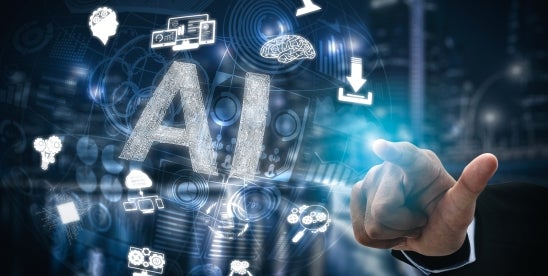
Legal Landscape Transformation with Generative AI
As we approach the close of 2024, generative artificial intelligence (genAI) is increasingly influencing the legal field. This article explores ten evolving trends in how lawyers are adopting genAI, utilizing its capabilities, and assessing the associated risks.
One prominent aspect is the widespread adoption and uneven distribution of AI technologies across the legal profession. A recent study by Everlaw documented a leap in AI usage among lawyers, rising from 23% in 2023 to 34% in 2024. This growth suggests a broader acknowledgment of the potential benefits AI can bring to legal work. However, a deeper examination reveals a disparity between larger organizations and smaller firms. According to a survey by Ironclad, an impressive 90% of General Counsels and 70% of lawyers from large firms have integrated genAI into their workflows, potentially leading to a divide in competency and service levels.
Gender Gap in AI Adoption
Another concerning trend emerging in this context is the gender disparity in AI usage. Recent data indicates that 64% of male lawyers are utilizing genAI, compared to just 40% of their female counterparts. The reasons behind this gap are not entirely clear, yet it raises significant questions about equity in access to tools that can enhance work efficiency. The implications may be particularly pronounced for women, who often shoulder a greater share of family responsibilities, potentially hindering their ability to leverage AI’s advantages.
Changing Perceptions of Copyright Risks
A noteworthy shift has been observed regarding copyright concerns associated with AI. Initially, the legal community exhibited apprehension about the risks posed by copyright issues; however, this sentiment is changing. Significant factors contributing to this evolving attitude include the observation that lawsuit targets are typically AI platform providers rather than end-users. Additionally, various AI platforms now offer legal fee coverage in the event of litigation, effectively reducing associated risks and encouraging legal professionals to explore AI tools more freely.
New genAI tools have been proliferating in the legal tech market as well, with numerous innovations tailored to specific areas of practice or designed to accomplish particular legal tasks. This surge in specialized tools signifies improvements in AI capabilities, effectively enabling more nuanced and ethical legal assistance.
Establishing Ethical Standards in AI Usage
As the deployment of AI becomes more mainstream in legal practice, regulatory bodies are stepping in to provide essential ethical guidelines. The American Bar Association (ABA) as well as multiple state bar associations have started issuing ethics opinions and informal guidance regarding the integration of AI in legal practices, such as ABA Formal Opinion 512. These guidelines aimed at navigating the ethical implications of AI usage are likely to spur broader adoption, transitioning from regulatory uncertainty to a more structured framework for responsible implementation.
Judicial Reactions and Transparency Requirements
The judicial system is embracing the advent of AI technology too. Following reports of inaccuracies in AI-generated court submissions, various judges are mandating transparency by requiring the disclosure of AI use in filings. Many courts now impose certification mandates ensuring that AI-generated content is verified for accuracy.
However, responses to AI in court are not uniformly regulated across jurisdictions. Notably, the Fifth Circuit Court of Appeals recently rejected a proposed circuit-wide rule for AI disclosures, citing existing court requirements as adequate to ensure the integrity of filings. They underscored the importance of attorney responsibility, indicating that the mere use of AI would not excuse any misconduct.
From Fear of Replacement to Collaborative Opportunities
In recent months, perceptions regarding AI in law have notably evolved. The discourse has shifted from concerns about AI replacing legal professionals to exploring how AI can complement and enhance their capabilities. This shift indicates a growing recognition of AI as a beneficial tool that can augment human expertise rather than act as a replacement.
Emerging Legal Challenges: Deepfakes and Content Authenticity
As the sophistication of AI technology progresses, novel challenges arise for the legal community. The emergence of deepfake technology complicates matters of authentication for voice, image, and video evidence in court. Lawyers may soon face new responsibilities to verify that materials obtained from clients are legitimate and not artificially generated, ensuring the legal system’s integrity remains intact.
Evaluating the Risks of Inaction
When ChatGPT debuted in 2022, many lawyers deemed the potential risks of misinformation and breaches of client confidentiality to outweigh its benefits. However, with a plethora of sophisticated AI tools now available specifically for legal practice, lawyers find themselves facing the growing risk of falling behind competitors or even committing malpractice if they refrain from adopting AI technologies.
AI’s Role Beyond Basic Tasks
Surprisingly, legal professionals are not confining their use of AI to basic tasks such as generating marketing copy or legal briefs. Instead, many are employing AI to develop more sophisticated arguments and strategies for their cases. This advanced application of AI tools demonstrates their potential to elevate the quality and depth of legal analysis, paving the way for more innovative solutions within the legal sphere.
